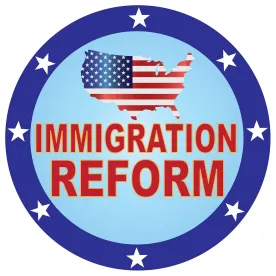On July 7, the U.S. Department of Homeland Security (DHS) launched a family reunification parole initiative for certain beneficiaries of an approved I-130, Petition for Alien Relative from Colombia, El Salvador, Guatemala, and Honduras. The initiative allows nationals from these countries to be considered for temporary parole on a case-by-case basis for up to three years while they wait to apply for permanent residency. The parole authority under the Immigration and Nationality Act (INA) has been used in similar family reunification parole programs before. Parole is granted based on urgent humanitarian reasons or significant public benefit. Paroled individuals may request employment authorization while waiting for their immigrant visa.
This parole action is narrower than prior Biden administration parole programs because it only applies to certain children and siblings of U.S. citizens and certain spouses and children of permanent residents with approved I-130 petitions. With recent court rulings making it hard for states to challenge federal immigration policies, the Biden administration – and perhaps future administrations – may well continue to implement immigration reforms through such executive actions. Indeed, this latest initiative may serve as a template for establishing parole options for beneficiaries in other visa backlogs (i.e., I-130, I-140 and I-526 petitions), which are taking several years, and in some cases more than a decade, to process and clear.
Under the new process, certain beneficiaries from Colombia, El Salvador, Guatemala, and Honduras who have an approved Form I-130, Petition for Alien Relative, may be eligible for parole consideration. These eligible beneficiaries must be outside the United States and fulfill all requirements, including screening, vetting, and medical requirements. Additionally, they should not have previously received an immigrant visa. The new parole process starts with the U.S. Department of State extending an invitation to the U.S. citizen or lawful permanent resident family member who submitted the approved Form I-130 on behalf of the Colombian, Salvadoran, Guatemalan, or Honduran beneficiary. The invited petitioner can then initiate the process by submitting a request on behalf of the beneficiary and eligible family members, seeking advance travel authorization and parole.
To reiterate: parole is granted solely at the discretion of the authorities and is temporary, case-specific, and contingent upon demonstrating urgent humanitarian grounds or significant public benefit. The beneficiary must also exhibit reasons that warrant a favorable exercise of discretion. Individuals paroled into the United States through these processes will generally be granted parole for a maximum of three years and may apply for employment authorization while awaiting their immigrant visa. Once their immigrant visa becomes available, they can apply for lawful permanent residency.



 />i
/>i

